HOW CAN WE HELP YOU? Call 1-800-TRY-CHOP
In This Section
Four Women in Science: What Inspires Them to Make Breakthroughs
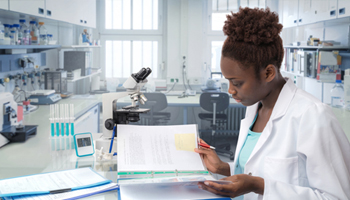 In the halls and history of Children’s Hospital of Philadelphia and its Research Institute, you don’t have to search far to find role models who thrive in science fields that have been, historically, underrepresented by women.
In the halls and history of Children’s Hospital of Philadelphia and its Research Institute, you don’t have to search far to find role models who thrive in science fields that have been, historically, underrepresented by women.
Madeline Bell, president and chief executive officer of CHOP, became the Hospital's first female CEO in 2015. Bell increased our investment in research by $10 million and spearheaded the development of the Roberts Collaborative for Genetics and Individualized Medicine, among countless more accomplishments. In 1982, Beverly Emmanuel, PhD, former chief of the Division of Human Genetics, and Elaine Zackai, MD, director of the Clinical Genetics, discovered 22q11.2 deletion syndrome, a research revelation that brought answers to many children with the chromosomal disorder. In 1969, Audrey Evans, MD, world-renowned pediatric oncologist and neuroblastoma researcher, became the first director and chief of the Division of Oncology at CHOP.
As these trailblazers inspire more young women to pursue careers in healthcare and science, the number of women in science multiplies — and so do our breakthroughs. We wanted to learn more about the next generation of female scientists at CHOP who are on the forefront of an unprecedented era in pediatric medicine. Leaders of the Research Institute’s Centers of Emphasis nominated scientists on their teams to be featured in a photo gallery in celebration of National Women's History Month 2018. The result: four incredible researchers who indulge curiosity, raise the bar, and drive discovery to improve the lives of children and families around the world. Meet them here:
Deborah L. French, PhD
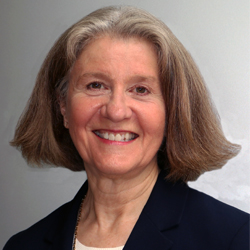
Director, Human Pluripotent Stem Cell Core, Raymond G. Perelman Center for Cellular and Molecular Therapeutics Years at CHOP: 10
My research uses the innovative human pluripotent stem cell (PSC) technology as a tool for modeling genetic diseases to study mechanism, development, and establish new therapeutic modalities. These remarkable induced PSCs (iPSCs) can be grown indefinitely in culture, and they have the ability to form any tissue of the body such as blood cells, heart cells, and neuronal cells. In addition, these cells can be genetically manipulated using the CRISPR/Cas genome editing technology to create control and mutant-specific cell lines that can be compared in downstream applications.
I tell young women interested in pursuing science to believe in themselves with confidence and motivation. Follow your passion for science, and do not give up. Start networking early. Be flexible but firm in your decisions. Find a sounding board who will help you balance home and career. When you hit bottom, take time to lick your wounds but bounce back. Have perseverance, and you will not regret it.
Allison E. Curry, PhD, MPH
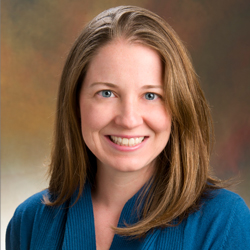
Senior Scientist and Director of Epidemiology and Biostatistics, Center for Injury Research and Prevention Years at CHOP: 9
My research focuses on the epidemiology and prevention of motor vehicle crashes among children and adolescents. I aim to advance traffic safety research and epidemiologic methods through novel linkages of administrative data sources. I have led the development of a unique data warehouse that integrates statewide New Jersey data on driver licensing, police-reported crashes, CHOP electronic health records, vital statistics, and hospital discharges. Our studies that use this data warehouse address critical foundational questions in traffic safety, impact young driver policy, and provide the evidence base for driving with developmental disabilities.
One of my personal goals is to travel far and wide. Professional travel allows me to visit wonderful places — for example, I lived in Denmark while conducting my dissertation research. I want to instill a sense of adventure and cultural curiosity in my three children. We spent a month in Europe last summer, and they met people from all over the world while I taught a course in Austria.
Renata Pellegrino da Silva, PhD
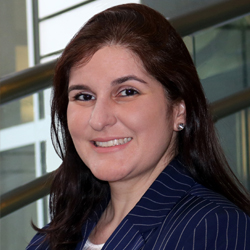
Laboratory Director, Center for Applied Genomics Years at CHOP: 8
My work focuses on developing advanced genomics technologies and techniques. I am from Sao Paulo, Brazil, where I started my PhD training dedicated to projects involving molecular changes caused by sleep deprivation. My most important academic move was becoming a PhD candidate at CHOP/Penn. With appreciation and determination, I embraced this opportunity to expand my knowledge of genetics in order to help families clarify answers about certain diseases and conditions.
My favorite quote is: “Even when there is darkness, we also see the illumination of the stars and the moon to guide our way.” Never give up! I had a difficult childhood that involved family illness, financial struggle, and frequent displacement. School was my escape and coping mechanism. As a 19-year-old biomedical undergrad, I had an amazing female oncology professor as a role model who was a scientist deeply committed to caring for patients. I want to serve the field of science by exhibiting the same emotional intelligence and hope to see a world transformed through medical discoveries applied equally toward all humans.
Julia Parish-Morris, PhD
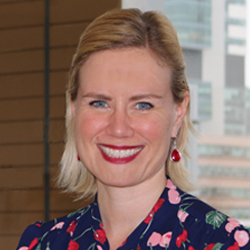
Scientist, Center for Autism Research Years at CHOP: 2
Girls with autism spectrum disorder (ASD) are different than boys, but the nature of those differences is just beginning to be understood. My research uses methods from computational linguistics and infrared eye tracking to identify what is unique about autism throughout the lifespan, particularly in girls and women. Understanding how autism may be expressed differently in girls and boys will improve the accuracy of early screening and identification efforts, and will inform personalized interventions to help individuals with ASD reach their full potential.
My one word of advice to young women interested in pursuing science is to persist. The value of diversity in scientific inquiry cannot be understated. Women and other underrepresented individuals bring perspectives to science that historically have been missed or ignored, leading to huge gaps in knowledge. Remember that you personally, and your perspective, are invaluable to scientific progress.